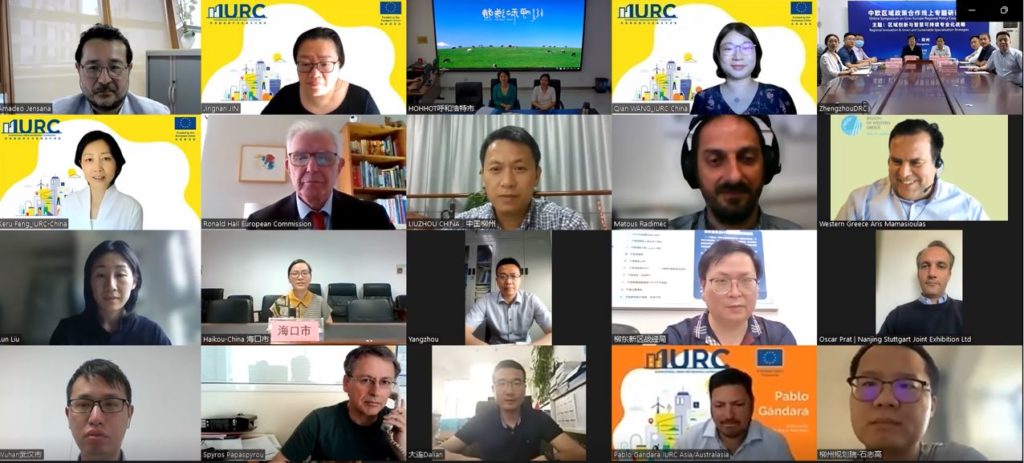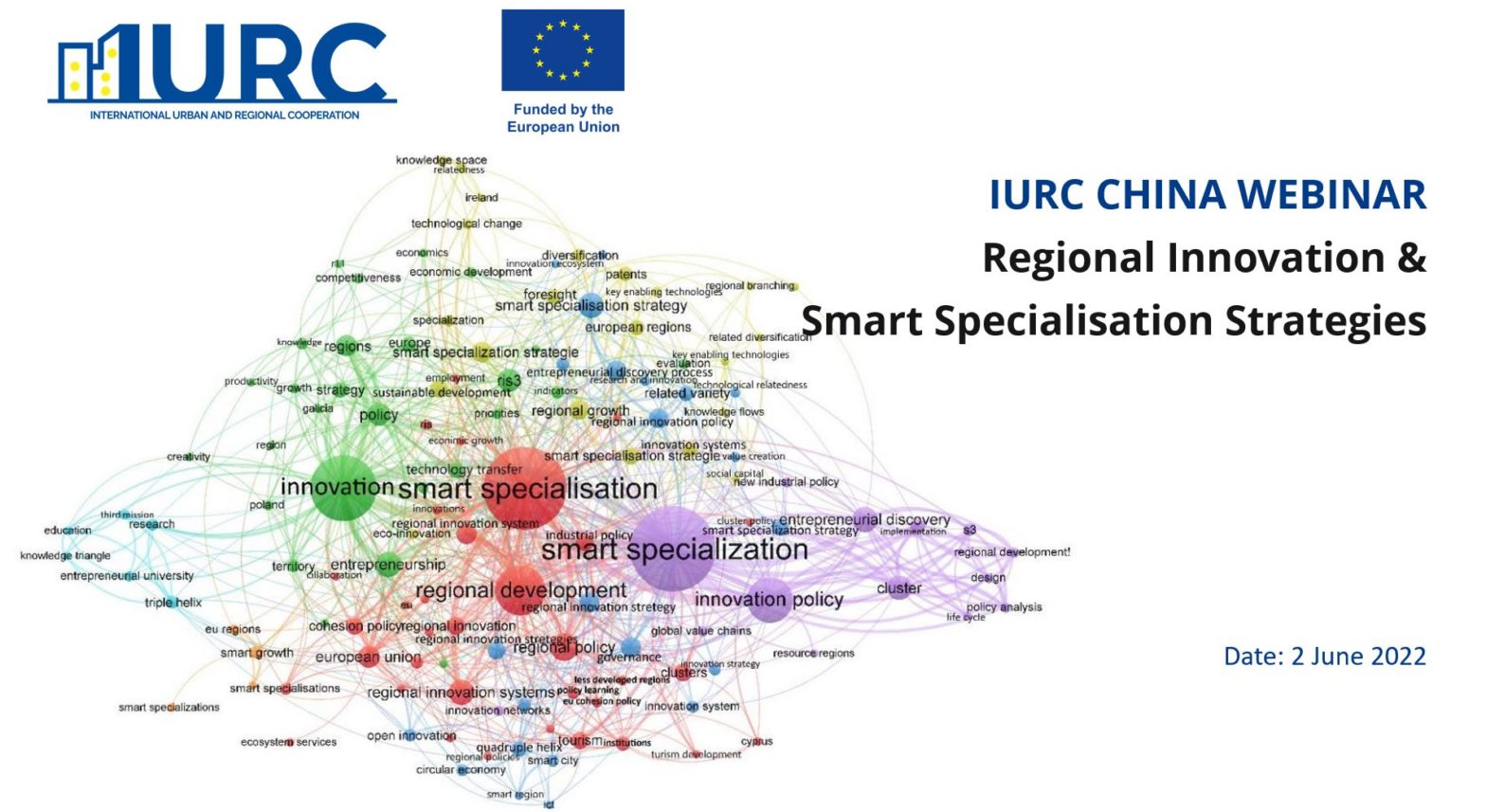On 2 June 2022, IURC China has organised the cooperation networking webinar on the Regional Innovation & Smart Specialisation Strategies. The event involved 14 European and Chinese regions, which are committed to transforming their economies and societies through further developing their strategic policy framework for innovation, industrialisation, sustainability and social development. Participants are from not only regional governments, but also social organisations, research institutes and the private sector. Delegates of Yangzhou, Region of West Greece, Haikou, Region of South Bohemia and Suzhou shared their positive experiences with smart specialisation strategies.
The further EU-China regional cooperation partnerships will be anchored in the IURC thematic cooperation framework, supporting the implementation of green growth and innovation. Particular attention will be placed on policy tools, research and entrepreneurship that drive the transformation for sustainability.
Participating regions will identify the cooperation areas based on their socio-economic characteristics. These can be experience exchanges on policy design and implementation, joint projects on specific economic sectors and research.
OPENING SESSION
Mr. Ronald Hall, Senior Advisor in the Directorate-General for Regional and Urban Policy from European Commission gave an overview of European regional innovation policy and its correlation with EU-China urban and regional cooperation.
Ms. WANG Qian, the team leader of IURC-China programme gave a welcoming speech.
PANEL PRESENTATIONS AND DISCUSSIONS
Prof. Amadeo Jensana, the Cluster Manager of IURC China on Regional Innovation (together with Prof. Liu Lun) and the co-author of a joint study of EU-China Regional Innovation, gave a scene-setting speech on the status quo of the regional innovation eco-system in the EU and China from a comparative perspective and gave practical suggestions on the future cooperation areas.

Mr. TAO Xiaojun, Division Chief of Yangzhou Development and Reform Commission, shared the plan of the Yangzhou Grand Canal Area aligned with the regional sustainable development agenda.

Mr. Aris Mamasioulas from the Managing Authority of Region Western Greece shared the experience in the region of Western Greece to develop a strong regional Innovation Ecosystem. Extensive use of new information and communication technologies are under the premise of emphasizing and maintaining regional identity. The regional administration plays a crucial role to apply state-of-the-art innovation mechanisms and processes to its strategic priorities, such as the competitiveness of SMEs, the health and safety of citizens, the digital economy, and support for the traditional production sector.

Ms. WU Yilian, Section Chief of the Regional Economy and International Cooperation Section in Haikou Development and Reform Commission, presented Haikou´s plan to develop a modernised port area, based on its unique geographical location and ecological environment.

Mr. Matouš Radimec from the Regional Development Agency of South Bohemia gave an overview of the RIS strategy in South Bohemia Region, which has strong capacity for science and research and diversified manufacturing industry.

Mr. WU Cheng, Deputy Director of Wujiang District Development and Reform Commission in Suzhou, shared the development plan for Wujiang District as an integrated ecological and livable lake area.

QUESTIONS AND DISCUSSIONS
In the Q&A session, Mr. Ronald Hall emphasized that the EU regions tend to have enough critical mass to successfully operate RIS/S3, which fits for regional innovation development in Chinese cities and regions as well. Delegates also highlighted the role of research, education, and training as the important part of the innovation ecosystem. Afterwards, the cluster managers, Prof. Amadeo Jensana and Prof. LIU Lun summarised the discussion with practical suggestions on further steps.
CLOSING SESSION
In concluding the webinar, Ms. WANG Qian, the Team Leader of IURC China explained the next steps and expressed gratitude for the leadership of the cities and region through their active involvement and institutional support.
The event was moderated by Ms. FENG Keru and supported by Ms. JIN Jingnan from the IURC-China team.
The IURC-China team would like to thank our IURC participating cities and regions for commitment to EU-China cooperation, making this dialogue happen, and paving the way towards green and digital transition across the innovation ecosystem. They include but are not limited to Region of West Greece, Haikou, South Bohemia Region, Suzhou, Yangzhou, Autonomous Region of Valencia, Ljubljana Urban Region, Dalian, Zhengzhou, Guangzhou, Wuhan, Kunming, Hohhot, Qingdao and Liuzhou.



